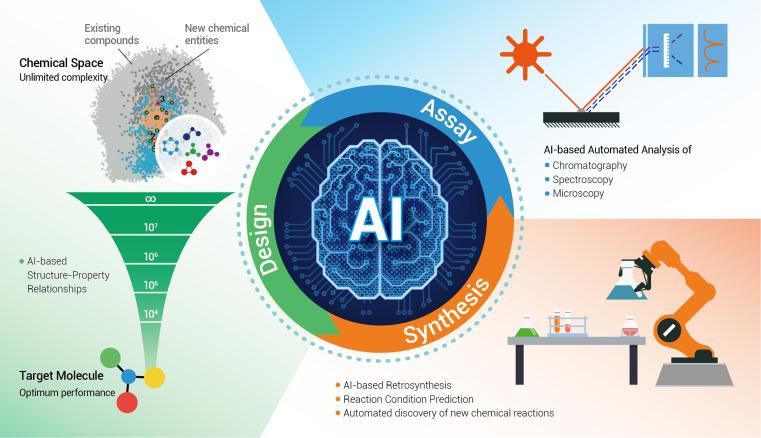AI and the future of Educational Research: Revolutionizing Learning and Data Analysis
Artificial Intelligence (AI) is driving an unprecedented change in educational research. From optimizing learning experiences to revolutionizing data analysis, AI is not only changing what we study but also how we approach the learning process itself. In this article,we explore the multifaceted impact of AI on educational research,provide practical insights,and review real-world case studies that highlight its innovative applications.
Understanding AI in Educational Research
artificial Intelligence has become a cornerstone of modern educational research.By harnessing machine learning, natural language processing, and predictive analytics, AI empowers educators and researchers to analyze complex datasets, identify trends, and develop more effective educational strategies.
- Machine learning: automates data analysis and identifies patterns not easily visible to humans.
- Adaptive learning systems: Tailor educational content to the unique needs of each student.
- Natural language processing (NLP): Analyzes textual data such as essays and open-ended responses.
The integration of AI in educational research is not merely about automation; it marks a shift towards personalized, data-driven learning environments that can adapt in real-time to both individual and group needs.
Benefits of AI in Educational Research and Learning
The benefits of AI in education extend far beyond efficiency. Let’s explore some key advantages:
- Personalized Learning Paths: AI enables the design of customized curricula based on students’ learning styles, speeds, and competencies, boosting engagement and outcomes.
- Efficient Data Analysis: AI algorithms can process and analyze vast quantities of educational data,uncovering insights that inform teaching practices and policy decisions.
- real-Time Feedback: Intelligent systems provide immediate feedback to students and educators, facilitating faster learning and betterment.
- Predictive Insights: Machine learning models can forecast student performance, identify at-risk learners, and suggest timely interventions.
- Automated Assessment: AI-driven tools enhance grading accuracy and consistency, reducing educator workload.
- Enhanced accessibility: Assistive AI technologies make education more inclusive for students with diverse needs.
How AI is Revolutionizing Data Analysis in Education
Data analysis lies at the heart of educational research. With the introduction of AI, the process of collecting, processing, and interpreting educational data has become exponentially more powerful:
Key AI Data Analysis Techniques in Education
- learning Analytics: AI algorithms assess large datasets to reveal learning patterns, predict student success, and inform instructional design.
- Natural Language processing (NLP): Automates the grading of essays and analysis of qualitative feedback.
- Social Network Analysis: AI evaluates interaction patterns within online learning platforms, identifying collaboration trends and group dynamics.
In addition, AI systems can continuously update thier models using new data, ensuring that analytical insights evolve in step with educational trends and learner needs.
Case Studies: AI in action in Educational Research
To fully appreciate the impact of AI in educational research, let’s look at some real-world case studies:
1. Early Warning systems for Student Dropouts
Large school districts across the United States have adopted AI-powered early warning systems. By analyzing attendance, grades, and behavioral data, these systems predict which students are at risk of dropping out. With this foresight, educators can implement targeted interventions, resulting in higher retention rates.
2.Adaptive Learning Platforms
Companies like Knewton and Duolingo have introduced adaptive learning technologies that adjust course content in real time based on students’ strengths and weaknesses. These personalized approaches have demonstrated marked improvements in knowledge retention and student satisfaction.
3. Automated Essay Grading with NLP
Educational institutions are increasingly leveraging NLP to automate essay grading. Not only does this reduce grading time, but it also ensures objectivity and highlights areas where students need further support.
Best Practices & Practical Tips for Leveraging AI in educational Research
- Start Small and Scale: Pilot AI tools in limited settings before full-scale implementation, ensuring a smooth learning curve for both teachers and students.
- Focus on Data Quality: Accurate and diverse data sets enable AI to deliver reliable insights. Invest in robust data collection and management systems.
- Collaborate Across Disciplines: Successful AI integration often involves educators, IT professionals, data scientists, and policymakers working together.
- Prioritize Privacy and Ethics: Adhere to ethical standards and comply with data privacy laws to protect students’ personal information.
- Continuous Professional Development: Provide ongoing training to educators and researchers, so they can maximize the benefits of AI technologies.
- Monitor and Evaluate: Regularly assess AI systems for effectiveness and update them as technology and learning needs evolve.
Challenges and Considerations
While the advantages of AI in educational research are notable, some challenges must be addressed:
- Equity: Ensuring all students and schools have equal access to AI-enhanced learning tools.
- Bias in AI Algorithms: AI models trained on biased data can perpetuate inequality. Mitigating algorithmic bias is essential for fair outcomes.
- Data Privacy: AI systems require large amounts of data, raising concerns about student privacy and data security.
- Technical Barriers: Resource limitations and a lack of technical expertise can hinder adoption, especially in underfunded education systems.
Proactively addressing these challenges is crucial to realize the full potential of AI in educational research.
The Future Outlook: AI Shaping Tomorrow’s Education
As AI technologies continue to evolve, their influence on educational research and learning will only expand. Experts predict AI will enable:
- Hyper-personalized learning journeys for every student
- Advanced learning analytics that preemptively address challenges
- Smart campus environments improving physical and digital learning spaces
- AI-generated content and interactive virtual tutors
- Global educational collaboration through intelligent platforms
While AI won’t replace human educators, it will serve as a powerful ally—freeing up time for creative, critical, and compassionate teaching.

